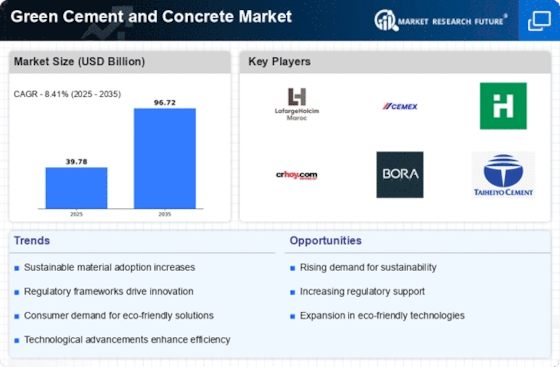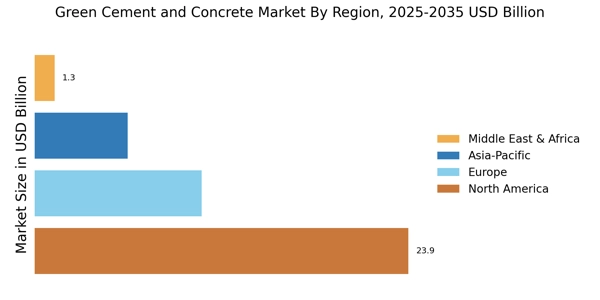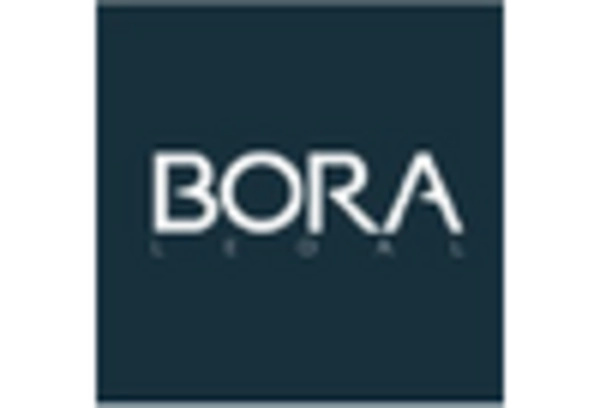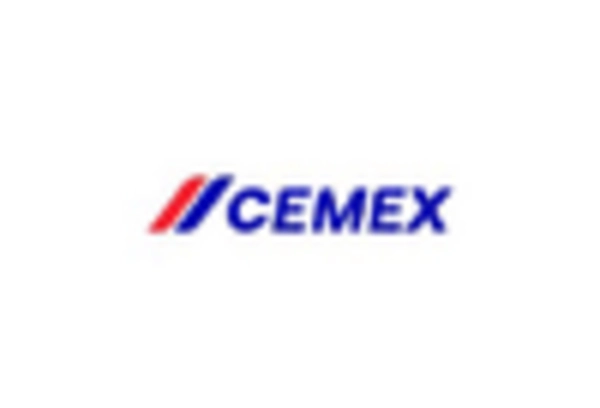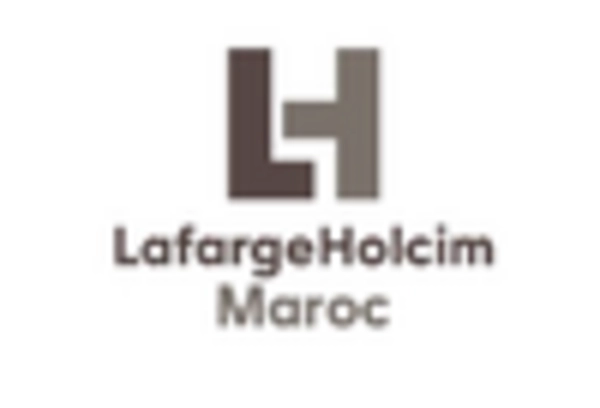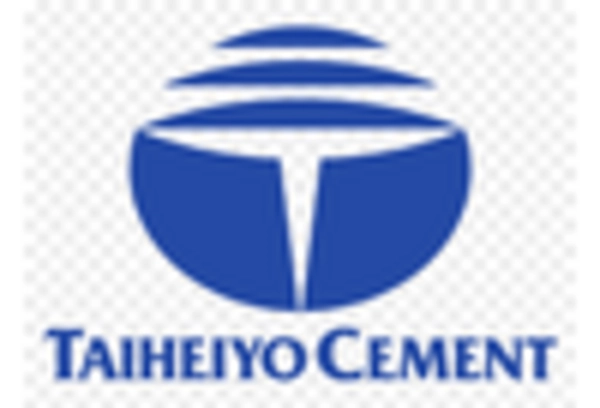Growing Construction Sector
The expansion of the construction sector is a significant driver for the Green Cement and Concrete Market. As urbanization accelerates, the demand for sustainable building materials is increasing. The construction industry is projected to grow at a rate of 5% annually, with a notable shift towards eco-friendly practices. This trend is prompting builders to seek out green cement options that align with sustainability goals. The Green Cement and Concrete Market is benefiting from this growth, as more construction projects incorporate green materials to meet both regulatory requirements and consumer preferences. Furthermore, the increasing focus on green building certifications is encouraging developers to invest in sustainable materials, thereby driving the demand for green cement in various construction applications.
Increasing Environmental Awareness
The rising environmental awareness among consumers and businesses is a pivotal driver for the Green Cement and Concrete Market. As climate change concerns escalate, stakeholders are increasingly prioritizing sustainable construction practices. This shift is reflected in the growing demand for eco-friendly materials, with the green cement market projected to reach USD 30 billion by 2027. Companies are now focusing on reducing their carbon footprints, which has led to a surge in the adoption of green cement alternatives. The Green Cement and Concrete Market is thus witnessing a transformation, as traditional cement production methods are being scrutinized for their environmental impact. This awareness is not only influencing consumer choices but also prompting regulatory bodies to enforce stricter environmental standards, further propelling the market forward.
Government Initiatives and Regulations
Government initiatives and regulations play a crucial role in shaping the Green Cement and Concrete Market. Many countries are implementing policies aimed at reducing carbon emissions and promoting sustainable construction practices. For instance, various governments have introduced incentives for using green building materials, which has led to an increase in the adoption of green cement. The market is expected to grow at a CAGR of 12% from 2025 to 2030, driven by these supportive policies. Additionally, regulations mandating the reduction of greenhouse gas emissions in construction projects are compelling manufacturers to innovate and invest in sustainable alternatives. This regulatory landscape not only fosters a competitive environment but also encourages collaboration among industry players to develop advanced green cement technologies.
Technological Advancements in Production
Technological advancements in the production of green cement are significantly influencing the Green Cement and Concrete Market. Innovations such as the use of alternative raw materials, carbon capture technologies, and energy-efficient manufacturing processes are enhancing the sustainability of cement production. For example, the incorporation of industrial by-products like fly ash and slag is becoming more prevalent, reducing the reliance on traditional clinker production. This shift is expected to lower the carbon intensity of cement, with projections indicating a potential reduction of up to 30% in emissions. As these technologies continue to evolve, they are likely to improve the performance characteristics of green cement, making it a more attractive option for builders and developers. Consequently, the market is poised for growth as these advancements gain traction.
Rising Investment in Sustainable Infrastructure
Rising investment in sustainable infrastructure is emerging as a key driver for the Green Cement and Concrete Market. Governments and private entities are increasingly allocating funds towards projects that prioritize sustainability and environmental responsibility. This trend is evident in the growing number of green building initiatives and infrastructure projects that aim to reduce carbon footprints. The market is expected to witness a surge in demand for green cement, as these projects often require materials that comply with stringent environmental standards. With investments in sustainable infrastructure projected to reach USD 1 trillion by 2030, the Green Cement and Concrete Market stands to benefit significantly. This influx of capital is likely to stimulate innovation and enhance the availability of green cement products, further solidifying their position in the construction landscape.


